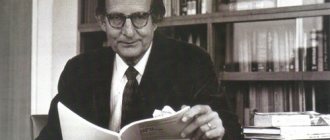Motivation of personality behavior
Motivation for personal behavior is the need to excite specific nervous structures to actively protect the body from negative situations and circumstances. The level of functioning of sensory arousals in the structure of the brain affects the motivation in the behavior of the individual. For example, a saturated body will not respond to tasty food and attractive dishes. External stimuli provoke the emergence of stimuli after specific motivation of the body and form a clear model of objects necessary to satisfy one’s own needs.
The motivation for human activity lies in personal interests, desires, aspirations, hobbies, beliefs, spiritual and material values.
- Interests are characterized by pronounced directions towards objects and objects, which lead to the stability of a person’s personal needs. The manifestation of interests consists of excessive attention to objects of lasting significance. Interests are motivational mechanisms that influence human behavior and are formed by personal needs. They have a significant impact on the formation of mental processes. According to the nature of needs, they are divided into spiritual and material interests. Depending on their stability, they can be versatile and limited, short-term and stable.
- Desires are an irresistible need to achieve a set goal with a drawn up plan of specific actions. Desires are accompanied by personal motivation, the needs of which are the subject of a person’s own satisfaction. There is a direct connection with the emotional desire to achieve the desired result.
- Passion is characterized by an affective, persistent desire for a certain object, which has an excessive impact on a person’s life. Passion, depending on the desires and aspirations of the individual, can be positive or negative. Negative passions provoke personality degradation and aggressive behavior. The main direction of positive passions is the achievement of goals.
- Attraction is an obsessive craving for certain actions, objects and objects, formed in social conditions and not amenable to the natural understanding of a person. The social environment of an individual disciplines his own drives. Violation of mental processes leads to increased instinctive impulses. For example, an irresistible sexual attraction to the opposite sex arises unconsciously and is beyond a person’s control.
- Intention is a deliberate intention or consciously made decision to achieve a specific goal with a clearly drawn up plan of action. Intentions lead to the development of motives that direct a person to certain actions and behaviors.
Basic human motives
Emerging needs force a person to actively look for ways to satisfy them and become internal stimulants of activity, or motives. Motive (from Latin movero - to set in motion, to push) is what moves a living being, for which it spends its vital energy. Being an indispensable “fuse” of any actions and their “combustible material”, the motive has always appeared at the level of worldly wisdom in various ideas about feelings (pleasure or displeasure, etc.) - motivations, drives, aspirations, desires, passions, willpower, etc. d.
Motives can be different: interest in the content and process of activity, duty to society, self-affirmation, etc. Thus, a scientist can be motivated to scientific activity by the following motives: self-realization, cognitive interest, self-affirmation, material incentives (monetary reward), social motives (responsibility, desire to benefit society).
If a person strives to perform a certain activity, we can say that he has motivation. For example, if a student is diligent in his studies, he is motivated to study; an athlete who strives to achieve high results has a high level of achievement motivation; The desire of the leader to subordinate everyone indicates the presence of a high level of motivation for power.
Motives are relatively stable manifestations and attributes of personality. For example, when we say that a certain person has a cognitive motive, we mean that in many situations he exhibits cognitive motivation.
The motive cannot be explained on its own. It can be understood in the system of those factors - images, relationships, personal actions that make up the general structure of mental life. Its role is to give behavior impetus and direction towards a goal.
Incentive factors can be divided into two relatively independent classes:
- needs and instincts as sources of activity;
- motives as reasons that determine the direction of behavior or activity.
Need is a necessary condition for any activity, but need itself is not yet capable of giving activity a clear direction. For example, the presence of an aesthetic need in a person creates corresponding selectivity, but this does not yet indicate what exactly the person will do to satisfy this need. Perhaps he will listen to music, or perhaps he will try to compose a poem or paint a picture.
What is the difference between need and motive? When analyzing the question of why an individual generally comes into a state of activity, manifestations of needs are considered as sources of activity. If we study the question of what the activity is aimed at, why these particular actions and actions are chosen, then first of all the manifestations of motives (as motivating factors that determine the direction of activity or behavior) are studied. Thus, need encourages activity, and motive motivates directed activity. We can say that a motive is an incentive to activity associated with satisfying the needs of the subject. The study of motives for educational activities among schoolchildren revealed a system of various motives. Some motives are main, leading, others are secondary, side, they do not have independent meaning and are always subordinate to the leading ones. For one student, the leading motive for learning may be the desire to gain authority in the class, for another it may be the desire to obtain a higher education, for a third it may be an interest in knowledge itself.
How do new needs arise and develop? As a rule, each need is objectified (and specified) in one or several objects that are capable of satisfying this need, for example, an aesthetic need can be objectified in music, and in the process of its development can also be objectified in poetry, i.e. more items can already satisfy her. Consequently, the need develops in the direction of increasing the number of objects that can satisfy it; the change and development of needs occurs through the change and development of objects that meet them and in which they are objectified and concretized.
To motivate a person means to touch on his important interests, to create conditions for him to realize himself in the process of life. To do this, a person must at least: be familiar with success (success is the realization of a goal); to have the opportunity to see yourself in the results of your work, to realize yourself in your work, to feel your importance.
But the meaning of human activity is not only to obtain results. The activity itself can be attractive. A person may enjoy the process of performing an activity, such as being physically and intellectually active. Like physical activity, mental activity in itself brings pleasure to a person and is a specific need. When a subject is motivated by the process of activity itself, and not by its result, this indicates the presence of a procedural component of motivation. In the learning process, the procedural component plays a very important role. The desire to overcome difficulties in educational activities, to test one’s strengths and abilities can become a personally significant motive for studying.
At the same time, an effective motivational attitude plays an organizing role in the determination of activity, especially if its procedural component (i.e., the process of activity) causes negative emotions. In this case, goals and intentions that mobilize a person’s energy come to the fore. Setting goals and intermediate tasks is a significant motivational factor that is worth using.
To understand the essence of the motivational sphere (its composition, structure, which has a multidimensional and multi-level nature, dynamics), it is necessary first of all to consider the connections and relationships of a person with other people, taking into account that this sphere is also formed under the influence of the life of society - its norms, rules, ideology, politicians, etc.
One of the most important factors determining the motivational sphere of an individual is a person’s belonging to any group. For example, teenagers who are interested in sports are different from their peers who are interested in music. Since any person belongs to a number of groups and in the process of his development the number of such groups grows, naturally his motivational sphere also changes. Therefore, the emergence of motives should be considered not as a process arising from the internal sphere of the individual, but as a phenomenon associated with the development of his relationships with other people. In other words, changes in motives are determined not by the laws of spontaneous development of the individual, but by the development of his relationships and connections with people, with society as a whole.
Motivation for personal activity
Motive is a deliberate impulse aimed at achieving a specific goal or task, causing the individual to satisfy his own needs. The motivation of an individual’s activity develops on the basis of several motives, which are accompanied by a certain significance and are the meaning of human activity. Motives can provoke conflict in the implementation of intended goals.
The motivation of an individual’s activity is determined by attitudes characterized by readiness to commit certain behavior. Attitudes are embedded in behavioral stereotypes. Thus, the motivation of an individual’s activity is a complex of interrelated factors. Motives are often confused with goals, objectives and needs. A need is an unconscious desire to eliminate discomfort, and a goal is the result of a conscious desire.
Maslow's Motivation and Personality
In his works on the relationship between motivation, Abraham Maslow refers to the fact that man is an eternally desiring being. He rarely has a feeling of complete satisfaction, and if he does, it doesn’t last long. Having satisfied one desire, another immediately arises, a third, and so on endlessly. Incessant desires are a characteristic feature of a person, and also act as motivation throughout life. The external manifestation of one particular motive often depends on general satisfaction, as well as dissatisfaction with the needs of the body. For example, if a person is hungry or thirsty, if he is threatened every day by earthquakes or floods, if he constantly feels the hatred of others, then he will not have the desire to paint a picture, dress beautifully, or decorate his house.
A. Maslow argues that multiple motivations of behavior guide a person. This is confirmed by physiological studies of eating or sexual behavior. Psychologists know that often the same behavioral act expresses very different impulses. For example, a person eats so that the feeling of hunger disappears, but there are other reasons. Sometimes a person eats to satisfy other needs. By having sex, a person satisfies not only sexual desire. Some assert themselves; others feel power, feel strong; still others are looking for sympathy and warmth.
Motivation for the formation of personal behavior
The motivation for the formation of personal behavior lies in the social environment of a person, his personal interests, needs, motives of behavior, attitudes, beliefs, actions, and actions taken. The social environment includes production, nature, the level of development of society, relationships with people, and public opinion. The environment has a tremendous influence on the emergence of human needs, which are formed from birth. Newborns have innate physiological and physical needs. Awareness of personal needs leads to the definition of one's own goals, interests and desires.
Developmental exercises to motivate children and adults
Developmental exercises for motivation
Own complexes serve as the main motivation for creating certain goals and completing assigned tasks:
Associations with animals. By associating himself with an imaginary character or a real object, a person will be able to achieve personal growth in a short time. The positive character traits of a favorite character evoke positive beliefs and attitudes in the individual, which lead to the emergence of new goals and objectives. Animals are powerful and wise creatures that are the main basis of nature and the surrounding world. By identifying his personality with an animal, a person motivates himself to show caution, perseverance, and determination.
To complete the exercise, you will need to choose an animal, characterize its positive and negative qualities, imagine yourself in the place of an imaginary character and strive to achieve your goal. It is recommended to choose the image of a strong lion or a cute rabbit. You should be in this image for at least 5 minutes and try to overcome in a short period of time the difficulties that the animal faces in reality. After completing the actions, you should analyze your own feelings and emotions, determine the tasks that you managed to implement.
Realizing your own mistake . Every person makes mistakes in life, but not everyone manages to admit them. In preschool institutions, teachers often make comments to children about performing various actions and actions. Teachers point out significant mistakes made by students when completing tests, and analyze complex tasks step by step. It is precisely these actions of adults that motivate children to complete difficult tasks.
Developmental exercises for motivation should be carried out several times a week. To do this, it is worth imagining a difficult situation, identifying the positive and negative aspects of the current situation, and correcting your own mistakes.
About spontaneity
Spontaneity is the inner motivation of a person. Craving, attraction, interest, even motivation as such are spontaneous phenomena.
Well, I’ll start with the main thing, perhaps. About spontaneity.
Spontaneity is the inner motivation of a person. Craving, attraction, interest, even motivation as such are spontaneous phenomena.
Spontaneity is the opposite of violence. External demands, pressure, someone else's will, external orders reduce spontaneity.
That is why any torture instruments, even the most elegant forceps, reduce spontaneous attention and kill desire.
Subscribe to our INSTAGRAM account!
We say “plus grows from tongs and rolling pins” - this is it. And this concerns not only relationships, any resource. The greater the pressure, the stronger the reluctance, and then the disgust. This is true. But if everything were so simple, it would mean that no restrictions, rules or laws are needed, that all this is contrary to development and interferes with progress. However, this is not at all true.
Common sense and observation convince us that a combination of rules and freedom is needed , that freedom without rules turns into the gluttonous chaos of Charybdis, and rules without freedom turn into the toothy jaws of Scylla.
Both are equally destructive, and the living stream passes between one and the other. As in the initiation of Odysseus. And finding this golden mean is a person’s task.
Since ancient times, the best minds have been searching for the golden path.
A person is immature, infantile, unformed as a person, and is designed in such a way that his self-regulation repeats parental prohibitions. By and large, the infantile does not have any self-regulation, his regulation is a set of some “shoulds”, “musts”, against which his spontaneity rebels, since restrictions interfere with it.
This is why infantiles always fight against parents and parental figures, because it is from this side that they feel suppressed, they feel a threat to their pleasure and enjoyment of life.
Self-regulation of the infantile is Scylla snapping its mouth, or rather six. This is a family - seven selves, one of which is the man himself, the other six are the shepherd of Scylla.
Many psychotherapists carefully help a person get rid of parental pressure, without helping him become responsible (and this cannot be helped much from the outside).
That is, instead of ruling the locus and cultivating self-regulation, infantiles get rid of external restrictions and flow straight into the mouth of Charybdis.
This is a very harmful modern trend, and the sooner you realize how destructive the war against parental figures is, how much it breaks your locus of control and turns you into jelly, the better it will be.
There is no need to fight with either parents or parental figures; you need to free yourself from dependence through growing up.
Your dependence will decrease, and the power of parental figures will decrease, but you can reduce dependence only by growing strength and independence
There is no other way.
When a weak person fights with a guardian, he does not become stronger, he dies.
This also applies to the dependence of wives on their husbands, and the dependence of any minuses on the pluses. Don’t fight against the authorities when you are weak, fight against your own dependence and weakness, build personal supports.
So the infantile is at that stage of personal development that his self-regulation contradicts spontaneity. They are at war.
This is a war of “need” and “want”, this is a mind and a heart at odds, this is a conflict between the King and Queen, this is what we have talked about many times. And still, many people do not understand at all how self-regulation and spontaneity are combined.
In the same way, many do not understand at all how one can influence without using forceps , how one can want something without growing a figure, how one can love without merging boundaries . This is such a different level of being—mature existence—that to the immature it seems paradoxical or even impossible.
For understanding, I will give an example:
Everyone knows that fake behavior lacks spontaneity. Falsehood is like carrion, it is artificial, forced, it has no energy, it repels everyone.
Many people don’t understand why they need to learn something in love because any conscious actions are automatically classified as false.
They consider sincere only what is completely uncontrollable, what is not comprehended and not directed at all.
Is it noticeable how immature self-regulation such people have?
How great is the conflict between their spontaneity and self-regulation?
As individuals, such people are infantile; they are unable to control themselves.
The best publications in the Econet.ru Telegram channel. Subscribe!
As soon as they try to control themselves, they lose spontaneity, that is, vital energy. They must be controlled by others so that their own control does not interfere with spontaneity.
Moreover, others must control them, bypassing their reason, so that they obey senselessly , like a herd. As this happens from century to century with the crowd.
By and large, such an immature person (with a conflict of spontaneity and self-regulation) is a biorobot. He does not control himself, his owners control him.
The powers that be are learning (not always in an environmentally friendly way) to control the masses.
But first you need to learn to manage yourself.
And as Aristotle repeated to Alexander: “If you want strength, make your spirit strong.” In firmness of spirit it is easy to recognize the philosopher's stone - crystallized, hardened, formed will ("philosophical" because this stone is the fruit of reason, reason).
Aristotle taught that the best way to crystallize the spirit is to channel pothos (flow, spontaneity) toward arete (virtue, valor).
From the point of view of alchemy (which reflects the teachings of Aristotle), the Queen (spontaneity, strength, flow, pothos) can fall in love with the King (self-regulation, will, spirit) and stop conflicting with him if the King becomes worthy of it.
Firstly, it must exist as such, many do not have it at all (therefore, destroying parental figures and organizing a holiday of disobedience is depriving oneself of all will).
Secondly, his aspirations must be noble, beautiful, virtuous (the Queen appreciates this).
Third, he must respect the Queen and respect himself. He must be brave and free from addictions. It can be said that the King must be an excellent fisherman in order to fall in love with the Queen.
Returning to the example of falsehood and sincerity, I suggest realizing that the fisherman is completely sincerely acting within boundaries, completely sincerely respecting his partner, completely sincerely respecting himself, completely sincerely generous and sincerely independent.
But fish have a different sincerity. She sincerely wants to get into her head and ask for life, she wears a crown and sincerely believes that the wolf cub is unloved and needs her, she is sincerely dependent, she sincerely needs to rely on another. The fish has all this very sincerely.
If you make a fish act like a fisherman, it will turn out to be false, because all the sincerity of a fish is its bugs, crowns, caps and torture instruments. This is the fish's sincerity. This is her real content and if she tries to pretend to be strong, it will look fake. Often even comical.
Do you understand why the criterion of “sincerity” does not determine correct behavior? Being sincere is not enough. Sincerity is frankness, and if by revealing yourself you show your weakness, insignificance, stupidity, then who will reward you for this? If you sincerely feed yourself, then this sincerity will not do anything good for you. However, so is pretense.
However, realizing how weak, dependent you are, how bad your locus and bad boundaries are, can help you start working on yourself. Until this moment, it is better for you not to sincerely express all your bugs, not to be false, but to be restrained, to restrain yourself from draining, not to use tongs too sincerely, to limit your spontaneity when it seeks to feed you, to bring you down.
You need to realize that spontaneity is initially indifferent to your personality. It's collective! For spontaneity (flow, pothos, Queen, energy) it makes no difference whether you or another. This is an impersonal flow, it is ready to feed you to anyone who turns out to be stronger than you in spirit (namely in spirit).
For spontaneity there is only a process of evolution, a great food chain, for it there are no boundaries of personality, it flows where the attraction is strongest.
And the only way to keep your spontaneity inside yourself, to turn it to your advantage, to make its power beneficial for yourself and not destructive, to prevent it from leaving your body and de-energizing it, is to develop mature self-regulation. A King that the Queen can love. This is the only way to prove your right to own the stream.
Here is self-regulation - yes, it is YOU in the full sense of the word, it is your personal part, your individual part.
But the infant has almost none.
It seems to him that he exists, that he is his Self, but he replaces the locus of control with a focus of attention. Where his attention flows, the locus shifts there, there is his I, he cannot keep the locus within himself, therefore he does not have himself in the full sense of the word. This needs to be specially learned; this needs to be monitored and controlled at the first stages of training.
And the boundaries need to be checked and corrected if they move.
All the work of the right side of the inner circle of the Ego is conscious work.
The easiest way is to adjust the locus of control, it is a little more difficult to manage self-regulation (especially when the attraction to something is very strong and it is difficult to detach attention, that is, addiction, or when there is very little strength, that is, frustration), but a person cannot directly control his self-esteem, he can only remove the crown, but he cannot directly improve his self-esteem. And a person cannot directly control spontaneity.
If it can’t directly, it doesn’t mean it can’t do it at all. In general, it can, but indirectly, through editing the locus and direction of one’s attention from the spheres that destroy it to the spheres that make it stronger.
But this is a long topic. We are still at the very beginning. published . If you have any questions on this topic, ask them to the experts and readers of our project here
Author: Marina Komissarova
PS And remember, just by changing your consumption, we are changing the world together! © econet








